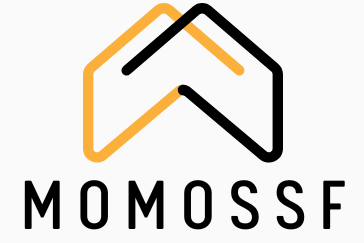In a world bursting with languages, keeping them fresh in the mind can feel like trying to juggle flaming swords—exciting but risky. Whether it’s for travel, work, or impressing that cute barista, mastering a language is just half the battle. The real challenge? Retaining all that knowledge! Luckily, there are some clever tricks that can make language retention not just effective but downright enjoyable.
Table of Contents
ToggleUnderstanding Language Retention
Language retention is crucial for maintaining fluency and proficiency. Keeping knowledge fresh involves consistent practice and effective strategies.
Importance of Memory in Language Learning
Memory plays a vital role in learning a language. Recall helps learners retrieve vocabulary and grammatical structures. Retaining words and phrases enhances communication abilities. Memory aids create connections between new terms and existing knowledge, reinforcing retention. Techniques like spaced repetition optimize memorization, ensuring long-term retention of language skills. Utilizing mnemonic devices also enhances memory for difficult words, making learning more efficient.
Factors Affecting Language Retention
Several factors impact language retention significantly. Motivation drives learners to practice regularly and stay engaged. Environmental exposure to language, such as immersion and interaction, boosts retention as well. Additionally, the frequency of use reinforces skills, allowing learners to solidify their understanding. Personal relevance of the language increases retention, making the content more meaningful. Finally, age can influence the rate of language retention, as younger individuals may absorb languages more readily.
Effective Language Retention Tricks
Maintaining language skills requires practical techniques and consistent effort. Several strategies can enhance retention and make the process engaging.
Spaced Repetition
Spaced repetition involves reviewing vocabulary and concepts at increasing intervals. This technique leverages the forgetting curve, ensuring that information is reinforced just before it’s likely to be forgotten. For example, learners might study new words immediately, then again after one day, followed by a week. Flashcards and language apps commonly use this method. Research shows that spaced repetition significantly boosts long-term retention, making it a preferred choice for many learners. Employing tools like Anki or Quizlet can help implement this strategy effectively.
Active Recall
Active recall focuses on retrieving information from memory instead of passively reviewing it. Testing oneself on vocabulary or grammar points fosters deeper learning. For instance, quizzing on previously learned material or using apps to generate questions enhances engagement and retention. This technique builds connections between words and their meanings, strengthening memory pathways. Evidence supports active recall as highly effective for language acquisition, as it helps solidify knowledge and boosts confidence in language use. Incorporating regular self-assessments ensures sustained language practice.
Engaging with the Language
Engagement plays a crucial role in retaining language skills. Active participation ensures learners stay connected to the language.
Immersive Experiences
Immersive experiences enhance language exposure. Engaging with native speakers through travel or cultural events provides authentic context. Watching films or listening to music in the target language creates enjoyable learning opportunities. Additionally, reading books or articles allows for deeper immersion in vocabulary and idiomatic expressions. Virtual reality tools can simulate immersive environments, making learning interactive and engaging. Participants can reinforce their skills through scenario-based interactions. These experiences create memorable moments that facilitate language retention.
Conversational Practice
Conversational practice is vital for building fluency. Daily interactions with native speakers strengthen language skills. Joining language exchange programs encourages learners to practice speaking in a supportive environment. Regularly conversing with friends or mentors boosts confidence and fluency. Online platforms offer opportunities for real-time exchanges with language partners across the globe. Engaging in discussions about familiar topics reduces anxiety and promotes comfortable communication. Utilizing conversational prompts can help steer conversations while encouraging spontaneous dialogue. These practices foster a gradual enhancement of language retention.
Utilizing Technology
Technology offers various tools for language retention. Incorporating these tools can make the learning process more effective and enjoyable.
Language Learning Apps
Language learning apps facilitate structured practice. Apps like Duolingo and Babbel provide lessons designed for all skill levels. Gamified elements encourage daily engagement. Users can track progress, motivating them to stay consistent. Flashcard-based apps such as Anki allow users to implement spaced repetition effectively. By customizing vocabulary sets, learners reinforce retention in a personal and relevant way. These features enhance the memorization process, resulting in improved language proficiency.
Online Language Communities
Online language communities create support networks for learners. Platforms like HelloTalk and Tandem connect learners with native speakers for real-time conversations. Users can practice speaking and writing while receiving feedback. Engaging with others promotes accountability and motivation. Furthermore, participating in forums allows for sharing tips and resources among learners. Such interactions deepen understanding and foster a sense of belonging. Overall, these communities provide immersive experiences that contribute significantly to language retention.
Mastering a language is just the beginning. Retaining that knowledge requires ongoing effort and engagement. By incorporating techniques like spaced repetition and active recall into daily routines, learners can reinforce their skills effectively.
Engaging with the language through immersive experiences and technology not only makes learning enjoyable but also enhances retention. Whether it’s joining a language exchange or using an app, the key lies in consistent practice and meaningful connections.
With the right strategies in place, anyone can maintain their language skills and continue to grow in fluency and confidence.






